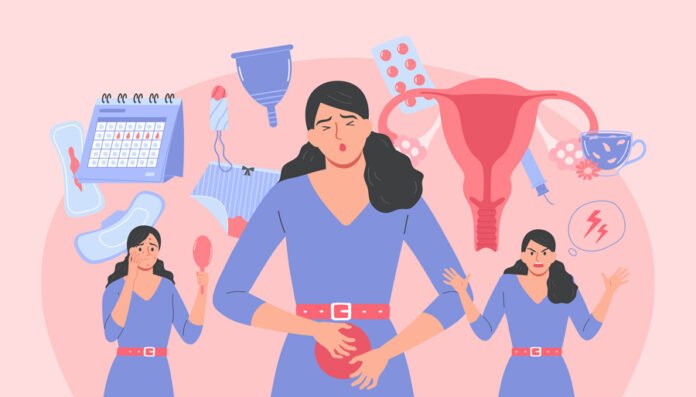As women enter their 40s, they may experience various changes in their reproductive health that can raise concerns. This stage of life brings unique challenges, from hormonal shifts to increased risks for certain conditions. Understanding these gynecological concerns is essential for maintaining overall well-being and taking proactive steps towards better health. In this article, we will explore the top gynecological concerns in women over 40 and provide insights on how to address them effectively.
1. Perimenopause and Menopause
One of the most significant changes women face in their 40s is the transition from perimenopause to menopause. Perimenopause is the phase leading up to menopause, during which the body gradually produces less estrogen. This transition can last several years and is often accompanied by symptoms such as irregular periods, hot flashes, night sweats, and mood swings.
Menopause is officially diagnosed when a woman has gone 12 months without a menstrual period. While menopause is a natural part of aging, it can also lead to various health concerns, including an increased risk of osteoporosis and heart disease. It’s crucial to work closely with a healthcare provider to manage symptoms and maintain overall health during this transition.
Managing Perimenopausal Symptoms
- Hormone Replacement Therapy (HRT): HRT can help alleviate symptoms such as hot flashes and night sweats by replacing the hormones the body no longer produces. Consult with the best gynecologist in Patiala to determine if HRT is right for you.
- Lifestyle Modifications: Regular exercise, a balanced diet, and stress management techniques can help reduce the severity of perimenopausal symptoms.
- Regular Check-ups: Annual gynecological exams are essential during this stage to monitor changes in reproductive health and screen for potential issues.
2. Increased Risk of Gynecological Cancers
As women age, the risk of developing gynecological cancers, such as ovarian, uterine, and cervical cancer, increases. Regular screenings, such as Pap smears and pelvic exams, are vital for early detection and prevention.
- Ovarian Cancer: Often called the “silent killer,” ovarian cancer may not show symptoms until it has advanced. Women over 40 should be aware of signs such as bloating, pelvic pain, and changes in bowel habits.
- Uterine Cancer: This type of cancer is more common in women who have gone through menopause. Symptoms include abnormal bleeding or discharge.
- Cervical Cancer: Regular Pap smears can detect abnormal cells in the cervix that may lead to cancer. HPV vaccinations also play a role in prevention.
Preventative Measures
- Routine Screenings: Regular Pap smears and pelvic exams are critical for early detection of gynecological cancers.
- Healthy Lifestyle Choices: A diet rich in fruits, vegetables, and whole grains, combined with regular physical activity, can reduce the risk of cancer.
- Know Your Family History: If you have a family history of gynecological cancers, discuss it with your gynecologist to assess your risk and consider genetic testing.
3. Changes in Sexual Health
Hormonal changes in women over 40 can lead to various sexual health concerns, including decreased libido, vaginal dryness, and discomfort during intercourse. These changes can affect a woman’s quality of life and intimate relationships.
Addressing Sexual Health Concerns
- Lubricants and Moisturizers: Over-the-counter lubricants and moisturizers can alleviate vaginal dryness and make intercourse more comfortable.
- Hormonal Treatments: Low-dose vaginal estrogen therapy can help restore moisture and improve sexual comfort. Consult with the best gynecologist in Patiala for personalized treatment options.
- Communication: Open communication with your partner about your sexual health concerns can help maintain a healthy and satisfying relationship.
4. Fertility Concerns and Reproductive Health
While many women have completed their families by their 40s, others may still be considering pregnancy. However, fertility naturally declines with age, and women over 40 may face challenges when trying to conceive.
Fertility Preservation and Treatment Options
- Fertility Testing: If you’re considering pregnancy, it’s essential to undergo fertility testing to assess your reproductive health.
- Assisted Reproductive Technologies (ART): Techniques such as in vitro fertilization (IVF) can help women over 40 achieve pregnancy. The best IVF hospital in Patiala offers advanced fertility treatments tailored to individual needs.
- Egg Freezing: For women who wish to delay pregnancy, egg freezing is a viable option to preserve fertility.
5. Pelvic Floor Disorders
Pelvic floor disorders, including urinary incontinence and pelvic organ prolapse, are common concerns for women over 40. These conditions can result from weakened pelvic muscles due to childbirth, aging, or hormonal changes.
Managing Pelvic Floor Disorders
- Pelvic Floor Exercises: Kegel exercises can help strengthen the pelvic floor muscles and reduce symptoms of incontinence.
- Lifestyle Changes: Maintaining a healthy weight and avoiding heavy lifting can prevent the worsening of pelvic floor disorders.
- Medical Interventions: In severe cases, surgical options may be necessary to correct pelvic organ prolapse or incontinence. Consult with your gynecologist to explore the best treatment options.
Conclusion
Navigating the gynecological concerns that arise after 40 can be challenging, but staying informed and proactive about your health can make a significant difference. Regular check-ups, healthy lifestyle choices, and open communication with your healthcare provider are essential steps in maintaining your well-being.
If you’re experiencing any gynecological concerns, seeking expert care is crucial. For personalized advice and treatment, consider consulting with the best gynecologist in Patiala. Additionally, if you’re exploring fertility options, the best IVF hospital in Patiala offers state-of-the-art reproductive services to support your journey.
By addressing these concerns with the help of experienced professionals, you can continue to enjoy a healthy and fulfilling life well into your 40s and beyond.


